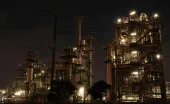
What Korea's decision to resume reactor construction means for the energy sector
LNG exporters will be badly affected.
LNG exporters will be disappointed by Korea's decision to resume construction on Shin Kori nuclear power plant's units 5 and 6. Wood Mackenzie estimated that full implementation of Moon's election promises could have resulted in around 10 Mt of extra LNG demand by 2030. This now seems unlikely.
The decision to continue with nuclear, may make it easier for the government to implement some of the other election promises. According to Kerry-Anne Shanks, head of Asia gas and LNG at Wood Mackenzie, increasing renewable capacity to 20% by 2030 will require subsidies. Displacing coal with LNG will increase fuel purchase costs. Maintaining nuclear makes anti coal, and pro gas and renewable policies more achievable, without putting too much upward pressure on electricity prices.
Here's more from Kerry-Anne Shanks:
With the planned nuclear phase-out delayed, it will be interesting to see whether more aggressive anti coal policies are enacted. So far restrictions of operations at 8 coal plants, have been more than offset by rising coal capacity. Thermal coal consumption has actually increased so far through 2017, despite Moon's stated anti coal stance. We haven't seen increases on coal or CO2 taxes, yet, that could improve the relative competitiveness of LNG compared to coal.
It would be very difficult for South Korea to phase out nuclear and meet improve air quality. Maplecroft's Air Quality index ranks Korea as extreme risk, with a worse score than Beijing or Mumbai.
KEPCO has been one of the few companies to successfully develop nuclear technology. It is developing capacity in UAE and is on the list for new nuclear developments in the UK. But it would be unusual for a nuclear plant to be developed without some G-to-G support. KEPCO's international nuclear expansion plans may have been more difficult, if nuclear energy was being phased out at home.
Finally, competitively priced and reliable electricity supply is critical to South Korea's manufacturing sector. Taiwan which is in the process of phasing out nuclear power has faced power capacity shortages. In August a major power outage left the majority of Taiwan without power. Taiwan's experience may have highlighted the difficulty of Korea implementing a nuclear phase-out.
In terms of Woodmac analysis, we have been cautious about making assumptions of major policy shifts without evidence that things were really changing. So we are not expecting significant revisions to Korean LNG demand.



















 Advertise
Advertise







